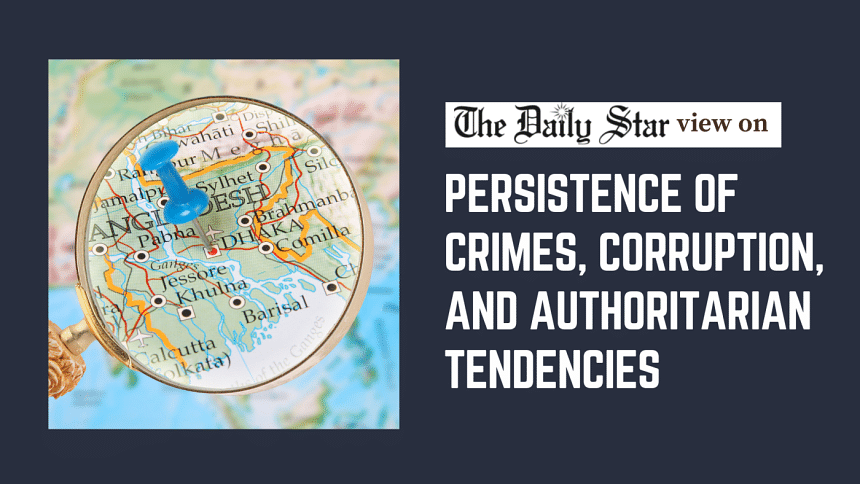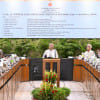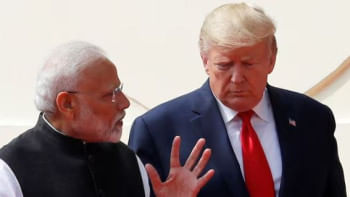Is the spirit of August 5 being betrayed?

As the nation celebrates one year of the historic August 5 that put an end to the autocratic rule of Sheikh Hasina's Awami League, it is deeply troubling that the corrupt, authoritarian, and exclusionary practices that had made the regime so reviled in the first place persist to this day. While the interim government has made some progress in certain areas, the challenges that remain are enormous—be it in politics, or economy, or governance. It would be unfair to place the blame squarely on the government. Political parties, newly formed civil platforms, the media, and citizens and public servants alike have all contributed to the growing sense of disillusionment.
That disillusionment is well reflected in a recent report of the Transparency International Bangladesh (TIB) that analysed developments across key sectors to present a sobering assessment of the first year since the uprising. The report highlights how systemic problems in politics, public administration, law enforcement, and even reform initiatives remain largely unaddressed, with troubling continuities in crimes, corruption, and mismanagement.
According to TIB, between August last year and June this year, 121 people were killed and 5,189 injured in political clashes, mostly involving BNP. In July, as per another estimate, political violence left 15 dead and 661 injured. Moreover, since the uprising, political leaders have conveniently filled the vacuum left by Awami League in various sectors, continuing the same patterns of extortion and control. About Tk 2.21 crore is apparently extorted daily from 53 terminals and stands in Dhaka alone. Political leaders and activists have also grabbed leases of bridges, jetties, quarries, and marketplaces across the country.
In politics, for example, violence remains a key concern. According to TIB, between August last year and June this year, 121 people were killed and 5,189 injured in political clashes, mostly involving BNP. In July, as per another estimate, political violence left 15 dead and 661 injured. Moreover, since the uprising, political leaders have conveniently filled the vacuum left by Awami League in various sectors, continuing the same patterns of extortion and control. About Tk 2.21 crore is apparently extorted daily from 53 terminals and stands in Dhaka alone. Political leaders and activists have also grabbed leases of bridges, jetties, quarries, and marketplaces across the country. Many have been involved in manipulating dubious cases, and in orchestrating mob attacks for various ends. And despite proposing numerous reform agendas, most parties have failed to initiate internal democratic practices. Politicisation of public institutions continues as before.
The performance of law enforcement agencies has been similarly disappointing. They continue to allow arbitrary cases and detentions, custodial deaths, and even extrajudicial killings. Their handling of mob attacks has often raised serious questions. Crimes of all sorts remain rampant. The justice system, too, has failed to live up to the promise of change. TIB notes that political partisanship in the judiciary still prevails, undermining public confidence in the courts.
It has also flagged serious issues within the administration, including chaos, corruption, and conflicts of interest. Public recruitments and promotions continue to be questionable. As for reforms, 11 commissions were formed, but important sectors like education continue to be sidelined. And no steps have yet been taken to reform state agencies like DGFI, DB, NSI, and NTMC—long used to enforce authoritarian control. The reform drive has also been frequently marred by a lack of clarity and political will. Even agreed-upon reforms, such as curbing executive overreach, have been met with conditional support from some political parties.
Given these circumstances, there are fears that the rare opportunity that we were handed to build a new Bangladesh will be squandered if we are not careful. So, one year on from the uprising, we urge critical reflection from all its stakeholders. They all must do more, and do better.

 For all latest news, follow The Daily Star's Google News channel.
For all latest news, follow The Daily Star's Google News channel. 









Comments